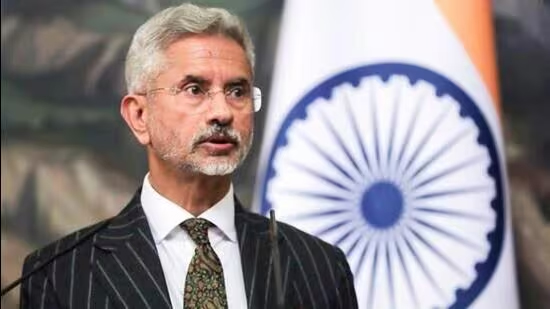In a historic move with far-reaching geopolitical implications, India recently inked a landmark 10-year agreement to operate the strategic Iranian port of Chabahar
 KRC TIMES Desk
KRC TIMES Desk

In a historic move with far-reaching geopolitical implications, India recently inked a landmark 10-year agreement to operate the strategic Iranian port of Chabahar. This development underscores India’s proactive approach to bolstering regional connectivity and trade ties, particularly with Central Asia and Afghanistan, while navigating through the complexities of international relations. The Chabahar port, situated on the Gulf of Oman, holds immense strategic importance for India’s trade ambitions. Proposed by New Delhi as early as 2003, the port serves as a crucial gateway for Indian goods to access landlocked Afghanistan and Central Asian markets. This vision is further augmented by the International North-South Transport Corridor, a road and rail project that promises to bypass Pakistan and facilitate smoother trade routes.
However, the journey towards realising this strategic vision has been fraught with challenges, primarily due to U.S. sanctions on Iran over its nuclear programme and the recent standoff with Israel. These sanctions significantly hindered the development of the Chabahar port, delaying its full potential as a vital trade link for the region. Nonetheless, the recent signing of the long-term agreement between Indian Ports Global Limited and Iran’s Port & Maritime Organisation signals a renewed commitment to advancing regional connectivity despite external pressures. Under the terms of the agreement, IPGL will invest approximately USD 120 million, with an additional USD 250 million raised as debt, to enhance the infrastructure and operations of the Chabahar port. This injection of capital signifies India’s economic stake in the project, underscoring its strategic intent to expand its footprint in the region.
The significance of this agreement extends beyond mere economic considerations as India forays into managing an overseas port for the first time, marking a significant milestone in its maritime capabilities and regional influence. By taking over the management of Chabahar, India aims to strengthen its position as a key player in the evolving dynamics of regional trade and connectivity. Moreover, the Chabahar port deal holds immense potential for fostering closer ties between India, Iran, and Afghanistan. By facilitating smoother trade routes and reducing dependence on traditional transit corridors, such as Pakistan, the agreement paves the way for deeper economic integration and cooperation among the participating nations.
With control over Shahid Beheshti terminal, India can streamline cargo movement, reduce transportation costs, and establish a reliable trade route to Central Asia. This paves the way for increased exports of Indian goods and greater access to the vast resources of the region. It will facilitate trade not just between India and Central Asia but also between Europe, Russia, and the Middle East. This enhanced connectivity can foster economic cooperation and development across the entire region. Additionally, war-torn Afghanistan can leverage Chabahar Port for crucial imports and exports, aiding its reconstruction efforts. India’s 2023 wheat shipment via Chabahar is a testament to the port’s role in supporting Afghanistan.
India’s foray into overseas port management is a bold move. While the Chabahar port deal offers immense economic and strategic advantages, India has to tread cautiously to ensure that its actions are perceived as conducive to regional stability and peace. The success of Chabahar hinges on efficient operations, attracting investment, and navigating the regional political landscape. However, the potential rewards are immense. A well-functioning Chabahar Port can be a game-changer, boosting trade, fostering regional cooperation, and propelling India’s strategic influence in the region. By leveraging its maritime capabilities and forging closer ties with Iran and Afghanistan, India has taken a decisive step towards reshaping the geopolitical landscape of South Asia and beyond.
This agreement marks a new chapter in India’s journey towards becoming a major maritime power. It signifies India’s proactive approach to regional development and its commitment to building strong partnerships. The road ahead may not be smooth, but with continued determination and strategic vision, India can turn Chabahar Port into a beacon of economic prosperity and regional stability.
Promotional | KRC TIMES






